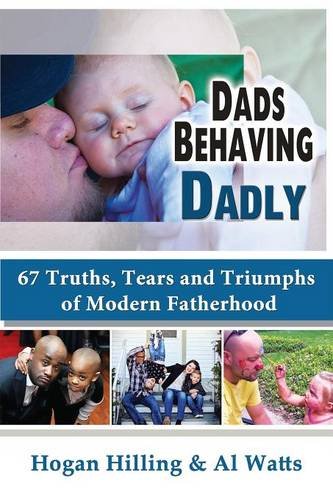I recently discovered a Dove commercial that, as a dad to an 8-year-old girl, gives me pause.
It’s called “Evolution,” and shows the 60-second transformation of an average-looking woman with straggly hair and a blemished face into a billboard knockout who is selling foundation makeup.
She can only become that knockout after a professional makeup artist does her hair and face, a professional photographer takes pictures of her, and a computer whiz alters her digital image.
This is all shown in fast motion, so the transformation in a bucketful of heartbeats is dramatic. Anyone looking at before and after pictures alone would be hard pressed to tell that the woman in both images is the same person.
The short video then states the obvious: “No wonder our perception of beauty is distorted.”
The video is part of the Dove Self-Esteem Fund, and encourages people to take part in the Dove Real Beauty Workshop for Girls. The goal of the fund is to help teens and young women develop a broader definition of beauty and build positive self-esteem.
I think of my daughter when I watch the video, though not about her needing to feel like she must be beautiful. She’s beyond beautiful. She’s stunning.
I say that, of course, as an objective observer and not a doting dad.
OK, so I’m not objective when it comes to my children, and I fawn over them way more than I should (as if that’s possible) but Celeste could be a model.
Her eyes are like chocolate chip raindrops and her smile makes the brightest rainbow seem gray. A natural blonde streak sprouts from the top of her head like a sunflower, highlighting her hair with accents women envy.
But I worry for two reasons.
The most obvious is teenage boys. I was one. I know how they think. I realize I have a few years before I have to worry about this, but it’s in the back of my mind nonetheless.
I’m not sure how I’ll handle it when boys start calling, but it won’t hurt to have copies of Soldier of Fortune strewn around the house along with a display case in the foyer featuring all my sharpshooting medals, plaques and trophies. And it won’t hurt to hang a few black belts, either. (I don’t have any of those things, but teenage boys won’t know they’re not genuine.)
I worry more about her self-esteem and the pressure society places on girls to live up to the advertising industry’s definition of beauty. Will her peers expect her to act a certain way because of her looks?
It sounds silly, but I think of the social statements that John Hughes makes in his classic movie, “The Breakfast Club,” and realize I’m not too far off the mark. The best movies and novels speak truths about the human condition, even if told under a veil of fiction. I wasn’t a big fan of the movie when it hit theaters in 1985, but it made a valid point about stereotypes and I’ve grown to appreciate it over the years.
When the movie starts, the characters have preconceived notions about each other based on their appearances and the clique to which they belong: the princess (Molly Ringwald), the jock (Emilio Estevez), the nerd (Anthony Michael Hall), the delinquent (Judd Nelson), and the disturbed loner (Ally Sheedy). I won’t spend time explaining the stereotypes of each character because everyone who attended high school knows what they are.
None of the characters like each other, and they all think the others either have it made or are a waste of flesh. As a result, none of them give the others the time of day. But throughout the movie, they learn about each other and the imperfections in their lives. They ultimately see reflections of themselves in each other, and gain a new respect for one another once they realize that stereotypes don’t always hold water.
They all learn that regardless of one’s appearances, all teenagers deal with emotional issues and similar pressures, albeit from their respective peer groups and the expectations placed on them.
For this reason I worry about my beautiful 8-year-old daughter, and how she will handle the pressure our society will inevitably place on her as she matures. Will she be allowed to show her intelligence even though she’s beautiful? Or will she feel like she must hide it, lest her peers mock her?
I’m not as worried about my 5-year-old son, so maybe I’m part of the problem. Or maybe I am just a product of our society’s stereotypes and the different expectations we place on girls and boys.
Maybe it’s time to watch “The Breakfast Club” again.
This is a re-post of a column that ran in The Gazette on June 10, 2010.


